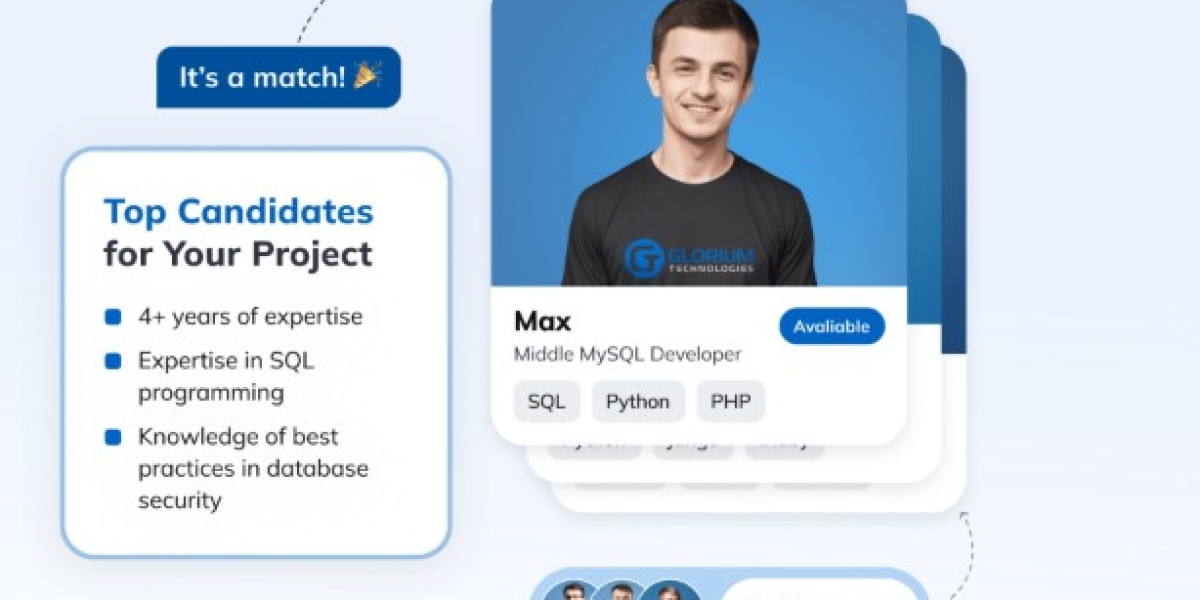Hiring the right MySQL developer is crucial for businesses looking to manage their data efficiently and ensure that their systems run smoothly. A highly skilled MySQL developer can help optimize database performance, build robust applications, and ensure data security. However, evaluating and interviewing MySQL developers can be challenging, given the technical depth required to perform this role. This article provides a comprehensive guide on how to evaluate and interview MySQL developers effectively, including key skills to assess, interview tips, and how to make the best hiring decision.
1. Understanding the Role of a MySQL Developer
Before diving into the interview process, it’s essential to understand the role and responsibilities of a MySQL developer. MySQL developers are responsible for:
- Database Design and Optimization: Creating and maintaining efficient database schemas.
- Query Writing and Optimization: Writing optimized queries to fetch and manipulate data.
- Data Integrity and Security: Ensuring that data is accurate, secure, and consistent across systems.
- Performance Tuning: Identifying and resolving performance bottlenecks.
- Backup and Recovery: Implementing and managing backup strategies to prevent data loss.
The role requires a deep understanding of MySQL as well as the broader concepts of database management and optimization. In the interview process, it’s important to assess both technical expertise and problem-solving abilities.
2. Key Skills to Look for in MySQL Developers
When evaluating MySQL developers, it’s crucial to look for a mix of technical skills, practical experience, and problem-solving abilities. Here are some of the key skills you should assess:
2.1. Proficiency in SQL and MySQL
A MySQL developer must have in-depth knowledge of SQL (Structured Query Language), as it is the primary language used to interact with MySQL databases. Key areas to focus on include:
- Complex Queries: Ability to write complex queries that join multiple tables, subqueries, and use advanced functions.
- Optimization Techniques: Understanding how to optimize SQL queries for better performance.
- Stored Procedures, Triggers, and Views: Familiarity with writing and managing stored procedures, triggers, and views in MySQL.
2.2. Database Design and Architecture
A good MySQL developer must understand the principles of relational database design. Look for candidates with experience in:
- Normalization: Knowledge of database normalization techniques to avoid redundancy.
- Indexes: Understanding the proper use of indexes for optimizing query performance.
- Relationships: Proficiency in establishing relationships between tables using foreign keys and constraints.
2.3. Database Performance Optimization
One of the key responsibilities of a MySQL developer is to ensure that databases run efficiently. Look for experience in:
- Query Optimization: Identifying slow queries and optimizing them for better performance.
- Indexing: Using the right indexes for fast data retrieval.
- Server Tuning: Configuring MySQL server settings to handle large amounts of data efficiently.
2.4. Backup and Recovery Strategies
Data protection is essential, and MySQL developers should be well-versed in strategies to prevent data loss. Key concepts include:
- Backup Techniques: Creating regular backups and understanding MySQL’s backup utilities.
- Disaster Recovery: Developing strategies for quick data recovery in the event of data corruption or server failure.
2.5. Security and Data Integrity
Ensuring the security of sensitive data is critical. A MySQL developer should be familiar with:
- Encryption: Implementing encryption for data at rest and in transit.
- User Permissions: Configuring user roles and permissions to restrict access to sensitive data.
- Audit Logs: Setting up audit logs to track who accessed the database and when.
2.6. Familiarity with Tools and Frameworks
MySQL developers often work with additional tools and frameworks to streamline their workflow. These may include:
- ORMs (Object-Relational Mappers): Familiarity with ORMs like Hibernate or Doctrine for managing database interactions in code.
- Database Management Tools: Experience with tools like phpMyAdmin, MySQL Workbench, or Adminer for managing and querying MySQL databases.
- Version Control: Knowledge of using version control systems like Git for managing schema changes and collaborating with other developers.
3. How to Structure the Interview
The interview process for MySQL developers should be structured to assess both technical knowledge and problem-solving abilities. Here’s a step-by-step guide on how to structure the interview:
3.1. Initial Screening
Start by reviewing the candidate’s resume to ensure that they have relevant experience with MySQL and databases in general. During the initial screening, focus on:
- Education: Ensure the candidate has a solid understanding of database management systems (DBMS), either through formal education or work experience.
- Previous Experience: Ask about previous projects involving MySQL, including the complexity of the databases and the specific role the candidate played.
If the candidate passes this stage, proceed with a technical interview.
3.2. Technical Assessment
The technical assessment is the most critical part of evaluating MySQL developers. Here are some steps you can take:
- Coding Challenge: Provide the candidate with a real-world database problem, such as optimizing a slow query or designing a schema for a new application. Ask them to solve the problem on the spot or as a take-home assignment.
- Database Design Exercise: Ask the candidate to design a database schema for a given use case. Evaluate their ability to choose the right relationships, indexes, and normalization.
- SQL Query Writing: Have the candidate write complex SQL queries that test their ability to join tables, filter data, and perform aggregations.
- Problem Solving: Present them with a performance bottleneck or security issue and ask how they would approach resolving it.
During the assessment, focus on:
- Efficiency: Does the candidate write optimized code?
- Attention to Detail: Does the candidate account for edge cases and data integrity?
- Problem-Solving: How does the candidate approach complex problems and unexpected challenges?
3.3. Behavioral Interview
While technical skills are paramount, it’s also important to assess the candidate’s soft skills. Some important areas to evaluate include:
- Communication: Can the candidate explain complex technical concepts clearly and concisely?
- Collaboration: How well does the candidate work with other team members, including developers, project managers, and other stakeholders?
- Adaptability: Is the candidate open to learning new technologies and approaches as the company’s needs evolve?
3.4. Cultural Fit
Finally, evaluate whether the candidate aligns with your company’s culture. Assess their values, work style, and approach to collaboration. A good cultural fit can improve teamwork and overall productivity.
4. Practical Interview Questions for MySQL Developers
Here are some practical interview questions you can ask to assess a candidate’s proficiency in MySQL:
- Explain the difference between INNER JOIN and LEFT JOIN. When would you use each?
- How would you improve the performance of a MySQL query that involves joining large tables?
- What is normalization, and why is it important? Can you explain the different normal forms?
- What is the purpose of indexing in MySQL? Can you describe how indexes work?
- How would you secure a MySQL database from unauthorized access?
- Can you explain how MySQL handles transactions and what ACID properties are?
- What are the best practices for creating backups and ensuring data integrity in MySQL?
- What tools or techniques do you use for performance tuning in MySQL?
These questions will give you a deeper insight into the candidate’s technical expertise and how they approach solving real-world problems.
5. Conclusion: Making the Right Hire
After conducting a thorough evaluation and interview, it’s time to make a decision. Here are some final tips to ensure you hire the right MySQL developer:
- Assess the Fit: Beyond technical skills, ensure the candidate aligns with your company’s needs and culture.
- Check References: Contact previous employers to verify the candidate’s work experience and abilities.
- Offer Competitive Compensation: MySQL developers are in high demand, so make sure to offer competitive salaries and benefits to attract top talent.
If you're looking to hire MySQL developers, consider working with a specialized recruitment agency or leveraging online platforms to find candidates with the right skills and experience.
The process of hiring MySQL developers requires careful planning, technical expertise, and a focus on finding candidates who not only have the right skills but also fit into your team and organization. By following this guide, you’ll be better equipped to evaluate and interview MySQL developers effectively, ensuring you make the best hiring decision for your business.



